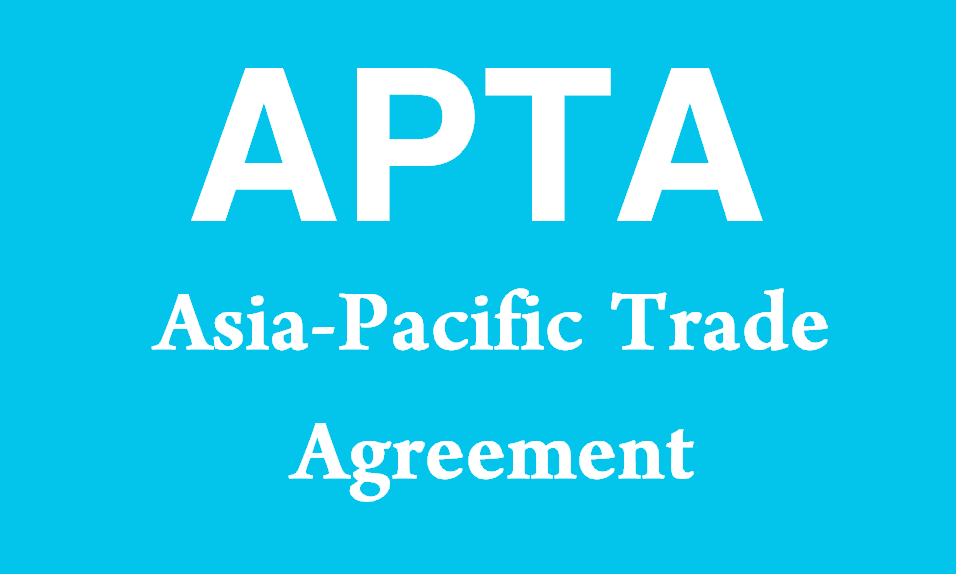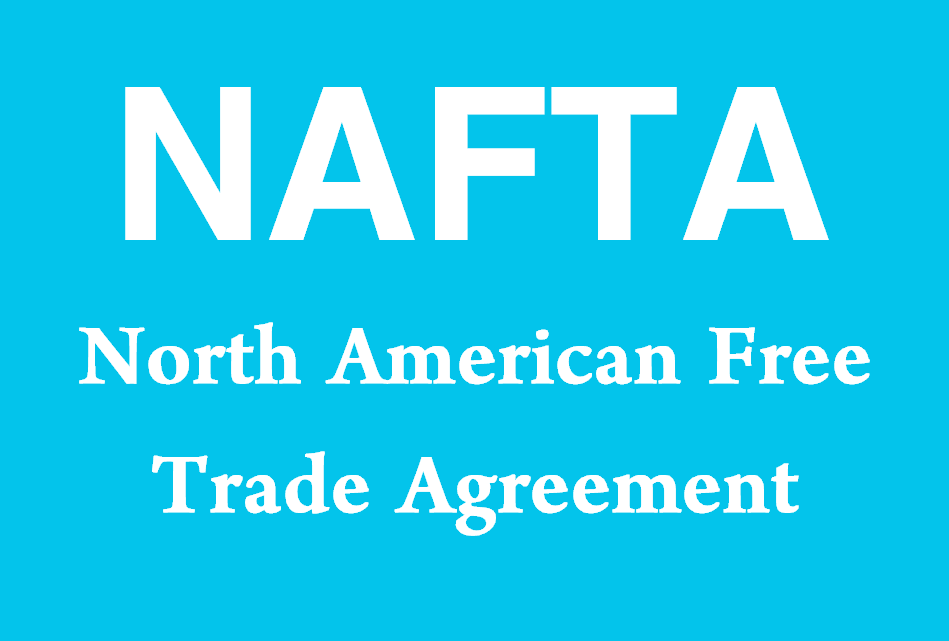What Does TFA Stand For?
TFA stands for “Trade Facilitation Agreement.” The Trade Facilitation Agreement is a World Trade Organization (WTO) treaty designed to simplify and harmonize international trade procedures. It aims to expedite the movement, release, and clearance of goods across borders by reducing red tape and improving customs cooperation, ultimately boosting global trade efficiency and economic growth.

Comprehensive Explanation of Trade Facilitation Agreement (TFA)
Introduction to the Trade Facilitation Agreement
The Trade Facilitation Agreement (TFA) is a groundbreaking international treaty adopted by the World Trade Organization (WTO) members in December 2013 at the Bali Ministerial Conference. It came into force on February 22, 2017, after being ratified by two-thirds of the WTO membership. The TFA is the first multilateral trade agreement concluded since the establishment of the WTO in 1995, and it represents a significant step forward in simplifying, modernizing, and harmonizing export and import processes.
Objectives and Scope of TFA
Objectives
The primary objectives of the TFA are:
- Reduction of Trade Costs: By simplifying and harmonizing trade procedures, the TFA aims to reduce the cost of international trade, making it more accessible and efficient.
- Improved Customs Efficiency: The agreement seeks to enhance the efficiency and effectiveness of customs administrations through better cooperation and use of modern technologies.
- Increased Transparency: The TFA promotes transparency in trade procedures, making it easier for businesses to understand and comply with regulations.
- Boosting Economic Growth: By facilitating trade, the TFA aims to stimulate economic growth, especially in developing and least-developed countries.
Scope
The TFA covers a wide range of measures to streamline trade processes and reduce delays at borders. Its provisions are divided into three main sections:
- Section I: Contains substantive measures for expediting the movement, release, and clearance of goods, including goods in transit.
- Section II: Deals with special and differential treatment provisions for developing and least-developed countries, allowing them to implement the agreement at their own pace.
- Section III: Establishes institutional arrangements for the implementation and monitoring of the agreement.
Key Provisions of TFA
Transparency and Predictability
The TFA requires member countries to publish information on customs procedures, fees, and charges, as well as the criteria for classification and valuation of goods. This transparency helps businesses understand and comply with trade regulations, reducing uncertainty and delays.
Simplification and Harmonization of Procedures
The agreement promotes the simplification and harmonization of trade procedures. Key measures include:
- Pre-Arrival Processing: Allowing for the electronic submission of import documentation prior to the arrival of goods to speed up clearance.
- Electronic Payment: Encouraging the use of electronic payment systems for duties, taxes, and fees to reduce processing times.
- Risk Management: Implementing risk management systems to focus inspections on high-risk consignments, reducing unnecessary delays for low-risk shipments.
Cooperation and Coordination
The TFA emphasizes the importance of cooperation and coordination among border agencies. Measures include:
- Border Agency Cooperation: Promoting collaboration between customs and other border agencies to streamline processes and reduce duplicative inspections.
- Authorized Operators: Establishing programs for authorized operators who meet specific criteria, granting them expedited clearance and reduced documentation requirements.
Technical Assistance and Capacity Building
To support the implementation of the TFA, especially in developing and least-developed countries, the agreement includes provisions for technical assistance and capacity building. Developed countries and international organizations provide financial and technical support to help these countries comply with the TFA requirements.
Impact of TFA on Global Trade
Reduction of Trade Costs
By streamlining trade procedures and reducing bureaucratic delays, the TFA significantly lowers the cost of trading internationally. This reduction in trade costs makes it easier for businesses, particularly small and medium-sized enterprises (SMEs), to engage in global trade.
Increased Trade Flows
The TFA facilitates smoother and faster movement of goods across borders, leading to increased trade volumes. By removing barriers to trade, the agreement encourages countries to export and import more, stimulating economic growth.
Enhanced Competitiveness
Businesses benefit from the TFA through reduced delays and costs, which enhance their competitiveness in the global market. Efficient trade procedures allow companies to respond more quickly to market demands and improve their supply chain management.
Economic Growth and Development
The TFA contributes to economic growth and development, particularly in developing and least-developed countries. By improving trade facilitation, these countries can better integrate into the global economy, attract foreign investment, and create jobs.
Challenges and Criticisms
Implementation Challenges
Implementing the TFA requires significant changes to existing trade procedures and infrastructure, which can be challenging for some countries. Developing and least-developed countries, in particular, may face difficulties in meeting the agreement’s requirements due to limited resources and technical expertise.
Coordination Among Agencies
Effective implementation of the TFA requires coordination among various border agencies, which can be difficult to achieve. Ensuring that all relevant agencies work together to streamline processes and share information is crucial for the success of the agreement.
Ensuring Compliance
Monitoring and ensuring compliance with the TFA provisions can be challenging. The WTO has established mechanisms for monitoring implementation, but continuous efforts are needed to ensure that member countries adhere to their commitments.
Future Directions
Technological Advancements
The TFA encourages the use of modern technologies to facilitate trade. Future advancements in technology, such as blockchain, artificial intelligence, and big data analytics, can further enhance trade facilitation by improving transparency, efficiency, and security.
Expanding Participation
Encouraging more countries to ratify and implement the TFA is essential for maximizing its benefits. Expanding participation in the agreement will enhance global trade facilitation and ensure that more countries can benefit from reduced trade costs and increased trade flows.
Continuous Improvement
The TFA is a living agreement that can evolve to address emerging challenges and opportunities in global trade. Continuous improvement of the agreement’s provisions and implementation practices is necessary to keep pace with changes in the global trade landscape.
Notes to Importers
Understanding TFA Provisions
For importers, understanding the provisions of the TFA is crucial for navigating international trade efficiently. The agreement offers opportunities to reduce trade costs, expedite clearance processes, and enhance supply chain management.
Key Considerations for Importers
Pre-Arrival Processing
Importers should take advantage of pre-arrival processing provisions to submit import documentation electronically before goods arrive at the border. This can significantly reduce clearance times and improve supply chain efficiency.
Risk Management Systems
Understanding and complying with risk management systems implemented by customs authorities can help importers reduce the likelihood of inspections and delays. Importers should ensure that their shipments meet the criteria for low-risk consignments.
Authorized Operator Programs
Importers can benefit from participating in authorized operator programs, which offer expedited clearance and reduced documentation requirements. Meeting the criteria for authorized operator status can enhance an importer’s competitiveness.
Practical Tips for Importers
Stay Informed
Importers should stay informed about changes in customs procedures and trade regulations in the countries they trade with. Regularly reviewing official publications and attending relevant trade events can help importers stay updated.
Collaborate with Customs Brokers
Working with experienced customs brokers can help importers navigate the complexities of international trade and ensure compliance with TFA provisions. Customs brokers can provide valuable guidance and support in managing import processes.
Utilize Technology
Leveraging technology can streamline import processes and improve efficiency. Importers should invest in electronic data interchange (EDI) systems, electronic payment systems, and other digital tools to facilitate trade.
Sample Sentences and Their Meanings
- “The TFA aims to simplify and harmonize international trade procedures, reducing costs and delays for importers.”
- This sentence explains that the TFA’s goal is to make trade procedures easier and more consistent, benefiting importers by lowering costs and reducing delays.
- “Pre-arrival processing under the TFA allows importers to submit documentation electronically before goods arrive at the border.”
- This sentence highlights that the TFA enables importers to send required documents ahead of time, speeding up the clearance process.
- “Participating in authorized operator programs as outlined in the TFA can expedite customs clearance for importers.”
- This sentence indicates that importers who join authorized operator programs can enjoy faster customs procedures.
- “The risk management systems promoted by the TFA help customs authorities focus inspections on high-risk consignments, reducing delays for compliant importers.”
- This sentence describes how risk management systems reduce unnecessary inspections for low-risk shipments, benefiting importers who comply with regulations.
- “Importers should stay informed about TFA provisions and changes in customs procedures to ensure smooth and efficient trade operations.”
- This sentence advises importers to keep up-to-date with TFA rules and customs processes to maintain efficient trade practices.
Other Meanings of TFA
| Acronym | Full Form | Description |
|---|---|---|
| TFA | Trade Facilitation Agreement | A WTO treaty designed to simplify and harmonize international trade procedures. |
| TFA | Teach For America | A nonprofit organization that recruits and trains teachers to work in underserved schools. |
| TFA | Trifluoroacetic Acid | A chemical compound used in organic synthesis and as a solvent. |
| TFA | The Force Awakens | The title of the seventh episode in the Star Wars film series. |
| TFA | Transcription Factor A | A protein that binds to specific DNA sequences, regulating the transcription of genetic information. |
| TFA | Texas Football Association | An organization governing football (soccer) activities in Texas. |
| TFA | Temporary Flight Authorization | A permit allowing temporary aircraft operations in controlled airspace. |
| TFA | Total Fatty Acids | A measure of the total amount of fatty acids present in a sample, often used in nutritional analysis. |
| TFA | Toronto Film Academy | An institution offering film education and training programs in Toronto. |
| TFA | Task Force Alpha | A fictional or real-life task force designated for specific missions or objectives. |
| TFA | Transportation Funding Act | Legislation related to the funding of transportation infrastructure projects. |
| TFA | Technical Field Advisor | A professional providing technical advice and support in specific fields. |
| TFA | Time for Action | A phrase indicating the need to take immediate action or initiative. |
| TFA | Tactical Fighter Aircraft | A type of military aircraft designed for air-to-air and air-to-ground combat. |
| TFA | Target Fitness Assessment | A program or test to evaluate an individual’s fitness level against specific targets. |
| TFA | Trade Finance Association | An organization representing the interests of trade finance professionals. |
| TFA | Trust Fund Account | An account established to hold and manage funds for specific purposes or beneficiaries. |
| TFA | Thermal Fatigue Analysis | A study of the effects of temperature variations on materials and structures over time. |
| TFA | Tourist Facilitation Agency | An organization that provides services and assistance to tourists. |
| TFA | Total Fixed Assets | The total value of an organization’s fixed assets, such as buildings, machinery, and equipment. |






